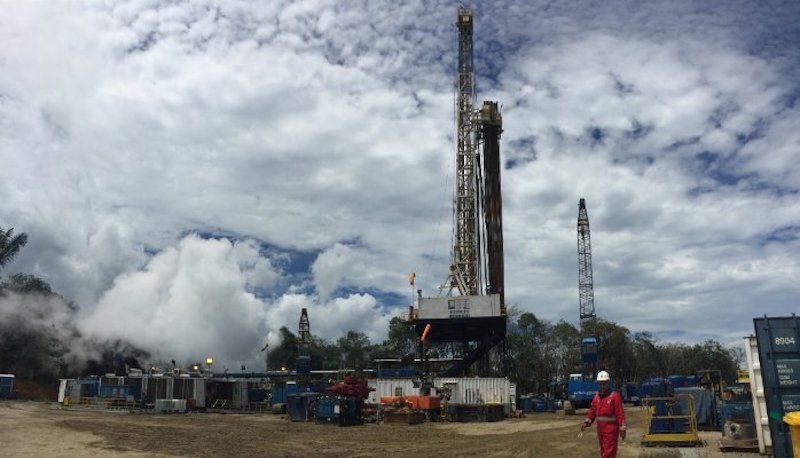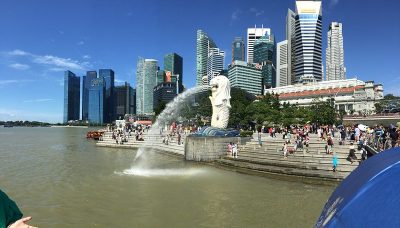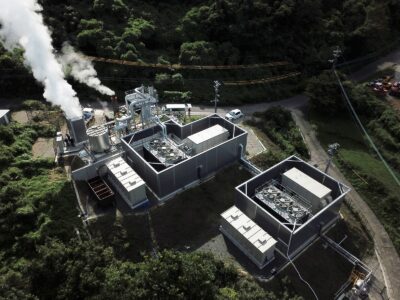Risk Mitigation and the Restructuring of Geothermal Funds in Indonesia
In efforts to mitigate risks associated with geothermal upstream resource development phase, Indonesia is taking robust steps to establish effective de-risking mechanism for geothermal exploration activity.
Currently, Indonesia’s geothermal energy potential contribute to 24% of the world’s geothermal potential energy. Nonetheless, geothermal energy in Indonesia is largely underdeveloped due to a variety of financial barriers. Firstly, geothermal exploratory phase is highly risky and requires a large upfront capital, which often excludes small to medium developers with insufficient equity. Secondly, there is a lack of preliminary and credible surface exploration data that could ensure commercial banks to provide loans for these developers. As such, the Indonesian Ministry of Finance (MoF) created fiscal facility for de-risking geothermal development to attract and assists developers, as well as ensuring the sustainability of growth in the sector.
“Business Viability Guarantee Letter” (BVGL) is issued by the MoF to guarantee financial obligation between PLN (the state-owned utility distributor and producer) and related Independent Power Producers (IPPs) based on the established Purchasing Power Agreement (PPA). Through associating MoF as a third party, the IPPs are protected should PLN is unable to fulfill its obligations in the event of political changes or default. The Sarulla Power Plant is among the few geothermal projects in operation that inquired BVGL as a risk mitigation.
MoF Regulation No 62/2017 created a new scheme for Geothermal Fund in Indonesia. The main objective of the new scheme is to facilitate financing in the geothermal sector, and to accumulate data on exploration for license preparation. The Geothermal Fund provides loan and equity injection between IPPs and other related stakeholders through business-to-business scheme. Additionally, the Geothermal Fund also consists of Geothermal Data and Information Provisions Facility where the MoF assigns PT Sarana Multi Infrastrukture (PT SMI) to provide data for the exploratory phase of geothermal development. PT SMI is the State-Own Enterprise (SOE) that is responsible to manage USD 240 million in geothermal fund. It’s vision is “to serve as catalyst in accelerating national infrastructure development”, and its multifaceted roles relies in financing, advising, and assisting in project preparation.
The Geothermal Fund is divided into two exploration schemes, namely the Government Drilling Scheme and SOE Scheme. The Government Drilling Scheme is used “to support the geothermal data and information provisions activity by the government” mainly for the tendering process. PT SMI is co-financing USD 49 million from the World Bank and the New Zealand Aid Programme in Government Drilling Initiative. PT SMI is also responsible for the SOE Scheme where it receives MoF Assignment to collect effective information on selected GWAs. Data gathered then is given to the SOE that inquired the information of the GWA. In the event of unsuccessful geothermal site, PT SMI will be compensated by the MoF as well as the SOE’s risk sharing portion.
Waesano Exploration in East Nusa Tenggara is the first Government Drilling pilot project. The total project cost is estimated to USD 27.5 millions, and its funding sources are grants from Clean Technology Fund (CTF) and Global Environmental Facility (GEF). The potential capacity of the area is 30 MW.
The development of exploration financing is imperative to reduce the risk associated with geothermal investment during the upstream resource development. Robust financing scheme could mitigate accountability issues where the risk of exploratory phase could be shared between stakeholders. The cost of unsuccessful exploration drilling is mostly borne by the Indonesian government increasing attractiveness for private developers to engage in geothermal projects in Indonesia. This is significant in changing the paradigm of Indonesia’s energy funds.
Sources – Presentations at the recently held IGC Invest Geothermal conference in Frankfurt/ Germany – Nov. 7, 2017
- Ilham Nugroho, Ministry of Finance (MoF), “Restructuring of Geothermal Funds in Indonesia, Breakthroughs for Exploration Financing”
- Pradana Murti, Director, PT Sarana Multi Infrastruktur (PT SMI), “PT SMI’s Role in Geothermal Energy Development in Indonesia, An Opportunity to Collaborate in the de-risking Mechanism for Geothermal Exploration Activity”


















